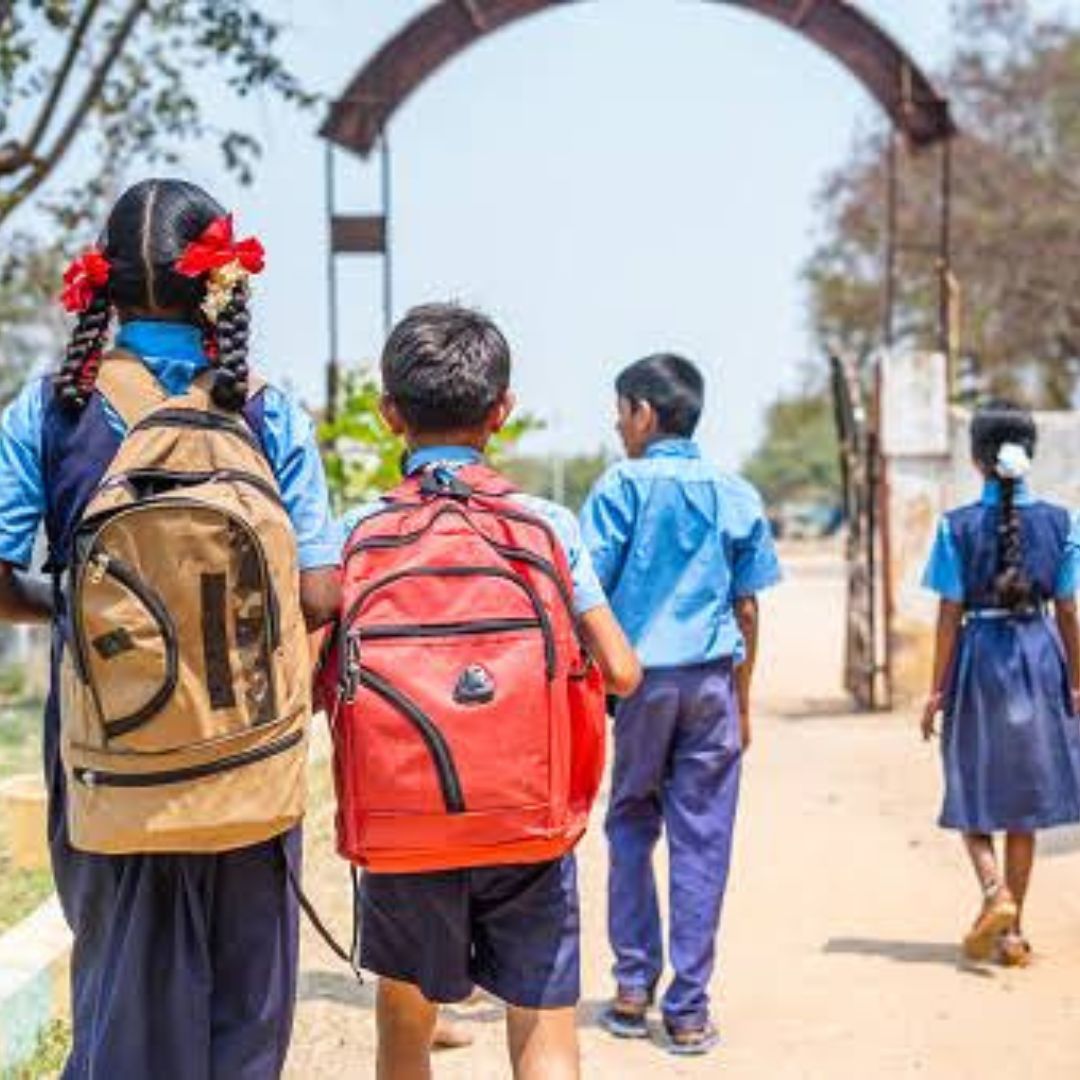
Image Credits: Unsplash
DCPCR's Early Warning System Helped 30,000 At-Risk Students To Resume Formal Education
Writer: Laxmi Mohan Kumar
She is an aspiring journalist in the process of learning and unlearning many things. Always up for discussions on everything from popular culture to politics.
Delhi, 30 Oct 2022 7:23 AM GMT
Editor : Ankita Singh |
A literature lover who likes delving deeper into a wide range of societal issues and expresses her opinions about the same. Keeps looking for best-read recommendations while enjoying her coffee and tea.
Creatives : Laxmi Mohan Kumar
She is an aspiring journalist in the process of learning and unlearning many things. Always up for discussions on everything from popular culture to politics.
The Delhi Commission for Protection of Child Rights and the government collaborated to bring those students, who have had critical levels of absenteeism, back to school. The initiative has been successful at reaching out to above 70,000 high-risk students within seven months.
The Delhi Commission For Protection of Child Rights (DCPCR) early warning system is a collaborative effort with the Directorate of Education (DoE), which aims to protect 'at-risk' children. The system keeps close surveillance on the attendance of students and attempts to bring them back to school when they reach critical levels of absenteeism.
Since its launch in April 2022, the system has been deployed across all 1,046 Delhi government schools, which have about 19 lakh students. It operated on the grounds that a substantially low school attendance meant the possibility of a vulnerability threatening the child's education and well-being.
Addressing Causes Of Growing Absenteeism
Since April 2022, the initiative has been able to reach out to more than 73,000 students and has been able to provide support and bring back over 33,000 students to schools.
Among the student community that the DCPCR extended support to, the major reasons for absenteeism included sickness (41 per cent), permanent and temporary migration to different states (25 per cent), or the students' families were unaware of or denied absenteeism (11 per cent). About 6,841 children, mainly adolescent boys, were found to have bunked classes.
There have also been critical cases identified, which included discontinuation due to the death of a parent, bullying, child labour, and child marriage. The number of such reported cases went up from 150 to over 200 children. In most scenarios, children belonging to socio-economically weaker sections faced highly vulnerable to life-threatening situations that held them back from attending school.
At least 33,000 such students are now back to attending regular classes due to the DCPCR intervention. In regard to this, the DCPCR chairperson Anurag Kundu said, "because of the Early Warning System, Delhi's student attendance tracking and intervention system has become much better than that of the United Kingdom where chronic absenteeism is also nearly 20 per cent, and no such tracking system exists."
Interventions Undertaken By DCPCR
The project simply leverages the education department's online attendance marking system to find out students who are at risk of dropping out. Based on the findings, they then launch a series of preventive interventions through which they reach out to the student as well as provide them with assistance in resuming their formal education.
The interventions could range from nudges to the parents through SMS to facilitating proper resolution channels in case of severe high-risk cases. According to an article by The Print, several studies indicated that SMS and IVRs are remarkably helpful in changing perspectives and behavioural patterns. This also includes counselling sessions on the importance of attending school regularly.
Starting from there, they then go on to customise the response provided based on the severity of the absence.
Meanwhile, a lot more crucial cases, such as abuse, trafficking, child marriage, medical emergencies, and so on are automatically directed to the DCPCR's grievance management teams to find an appropriate resolution. Under the same initiative, they ensure that SOS cases are also attended to within a maximum time frame of 24 hours.
Also Read: 'Every Child In India Will Be Free, Safe, And Educated By 2047': Nobel Laureate Kailash Satyarthi
 All section
All section














